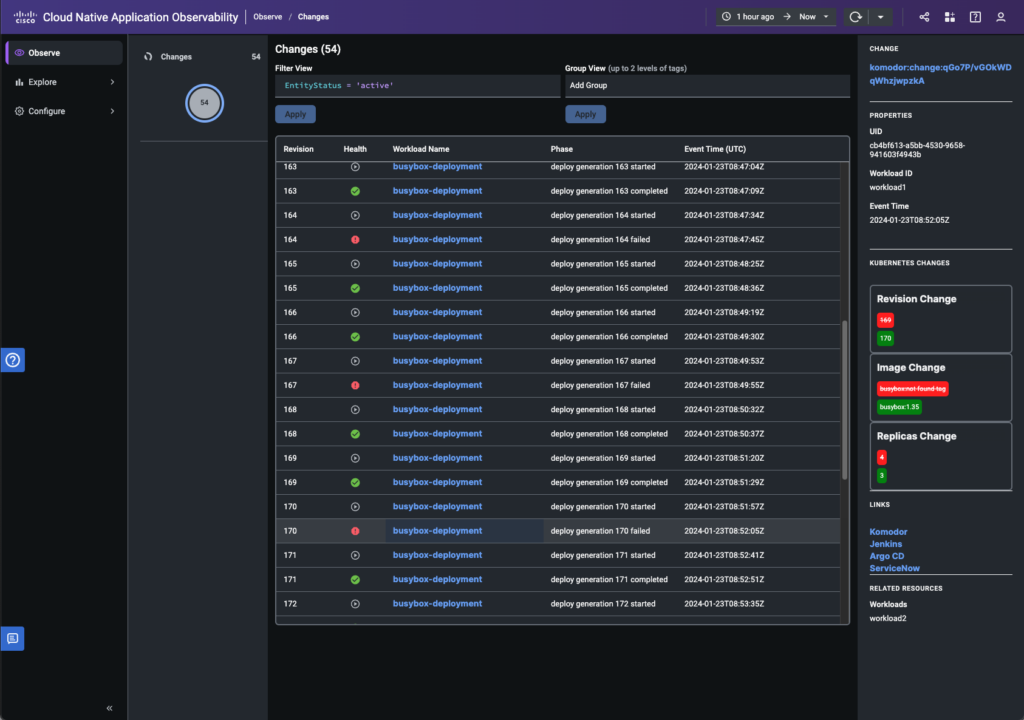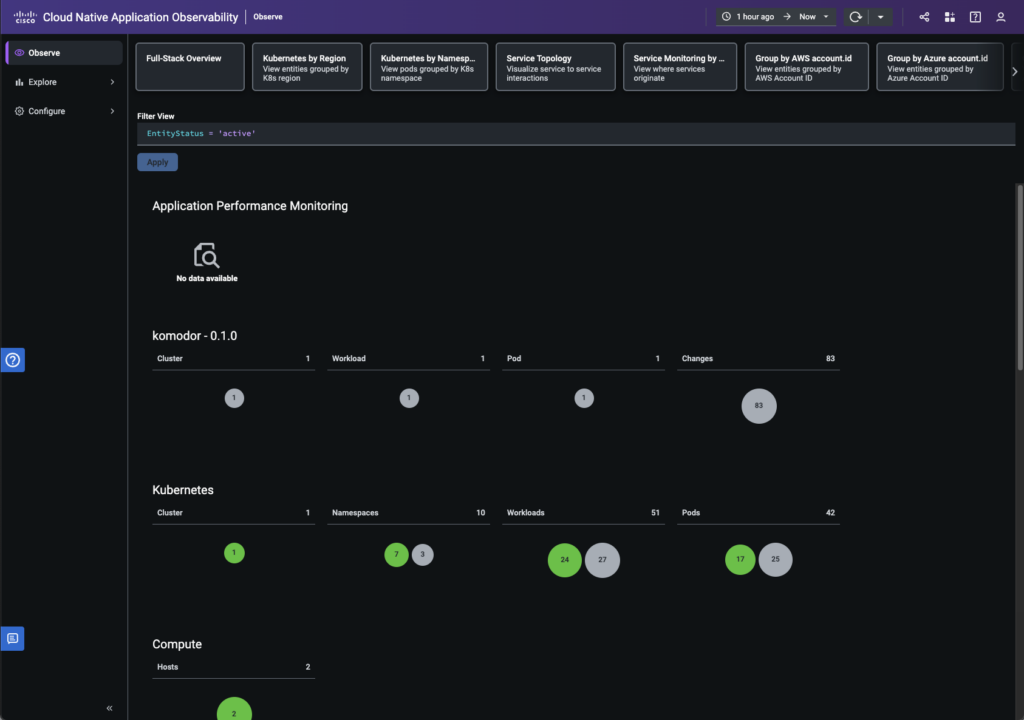We at Komodor are excited to announce our groundbreaking integration with Cisco Full-Stack Observability (FSO). This collaboration marks a significant milestone in Kubernetes Continuous Reliability, bringing together the best of both worlds to redefine Kubernetes management.
A Revolutionary Approach to Kubernetes Management
Komodor, known for pioneering Kubernetes Continuous Reliability, has now integrated with Cisco FSO to offer an unmatched solution in the Kubernetes landscape. Our unique ‘time machine’ feature, a cornerstone of this integration, records every change within your Kubernetes cluster, providing a detailed historical view essential for thorough analysis and effective problem-solving.
This feature is a significant force multiplier for the FSO platform, offering unparalleled visibility and insights into the impact of changes while maintaining the highest standards of system health.

Key Benefits of the Integration
- Comprehensive Visibility and Historical Insight: We provide a full-stack view of Kubernetes environments, enriched with our time machine feature for retrospective analysis. This is crucial for diagnosing and resolving complex issues and facilitating informed decision-making.
- Proactive Issue Management and Reduced Downtime: Our rapid identification and resolution of issues drastically minimize downtime, thus enhancing the reliability and efficiency of your Kubernetes infrastructure.
- Cost Optimization and Resource Efficiency: The platform enables effective monitoring and management of resource utilization, leading to significant cost savings and optimized resource allocation.
- Developer Empowerment and Shift-Left Approach: Emphasizing a shift-left core value, we empower developers with the tools and insights needed for efficient Kubernetes management, fostering a self-service culture.
- Advanced Security Posture: We reinforce Kubernetes security by proactively enforcing robust security policies, ensuring a secure operating environment.
Real-World Use Cases
- Cluster Optimization and Performance Enhancement: We ensure high system availability and optimal performance, maintaining continuous health and efficiency.
- Robust Security and Compliance Monitoring: Our solution streamlines the implementation and monitoring of security policies, enhancing compliance and security in Kubernetes environments.
- Efficient Cost Management and Resource Allocation: We offer a detailed analysis of resource usage, leading to cost-effective cluster management and reduced operational expenses.
- Empowering Developers with Enhanced Workflow: Equipping developers with advanced tools and insights, we promote a proactive and independent approach to Kubernetes management.

Some Early Feedback
As we like to say, DevOps engineers can’t scale as easily as K8s Pods. This simple truism is why we believe shifting-left Kubernetes operations and troubleshooting is the only way to move forward. One of our end-users shared, “Komodor has significantly improved our organization. The biggest benefit for me and my team is the amount of self-service it provides our developers. They no longer have to ask our operations team for help with any problems or questions.”
Conclusion
The integration of Komodor with Cisco FSO is not just a step forward; it’s a leap into the future of Kubernetes management. By combining operational efficiency, enhanced security, cost-effectiveness, and empowering developers through a shift-left approach, we are not just ensuring that Kubernetes environments are operational but also continuously reliable, secure, and cost-efficient.
Stay tuned for more updates, and feel free to reach out for more information about how this integration can benefit your organization.



